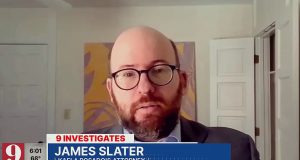The Supreme Court on Monday expressed shock that people were still being booked under Section 66A of the Information Technology Act that was scrapped by the top court in 2015. The law allowed for the arrest of people for posting offensive content online.
While hearing a petition filed by NGO, ‘Peoples Union For Civil Liberties’ (PUCL), a bench of Justices RF Nariman, KM Joseph and BR Gavai, asked, “Don’t you think this is amazing and shocking?” reports PTI.
“Shreya Singhal judgement is of 2015. It’s really shocking. What is going on is terrible,” the bench told senior advocate Sanjay Parikh, appearing for PUCL, the news agency reported.
Also read: Facebook took action against 30 million content pieces in India: Compliance reports
The advocate told the bench that despite the court’s direction that all state governments should sensitise police personnel about the March 24, 2015 judgement, thousands of cases have been registered under the section.
“Yes, we have seen those figures. Don’t worry we will do something,” the bench said.
In a landmark judgement on March 24, 2015, the SC scrapped Section 66A of the IT Act and described it as “vague”, “unconstitutional” and a “violation of free speech”.
Appearing for the Centre, Attorney General K K Venugopal said that on perusal of IT Act it can be seen that section 66A features in it and in the footnote one can see it written that the provision has been scrapped.
“Now when a police officer has to register a case, he sees the section and registers the case without going through the footnote,” Venugopal told the court.
Also read: Parliamentary panel tells Twitter ‘rule of land supreme’, not their policy
“Instead what can be done is that we can put a bracket just after section 66A and mention that it has been scrapped. We can in the footnote put the entire extract of the verdict,” he added.
Justice Nariman told the Attorney General to file counter in two weeks.
As per Section 66 of the IT Act, “Any person who sends by any means of a computer resource any information that is grossly offensive or has a menacing character; or any information which he knows to be false, but for the purpose of causing annoyance, inconvenience, danger, obstruction, insult shall be punishable with imprisonment for a term which may extend to three years and with fine.”
This was challenged in 2012 by Shreya Singhal, a law student from Mumbai after two women were arrested for posting content about the shutdown in the city after the death of Shiv Sena founder Bal Thackeray. The law was scrapped in March 2015.






